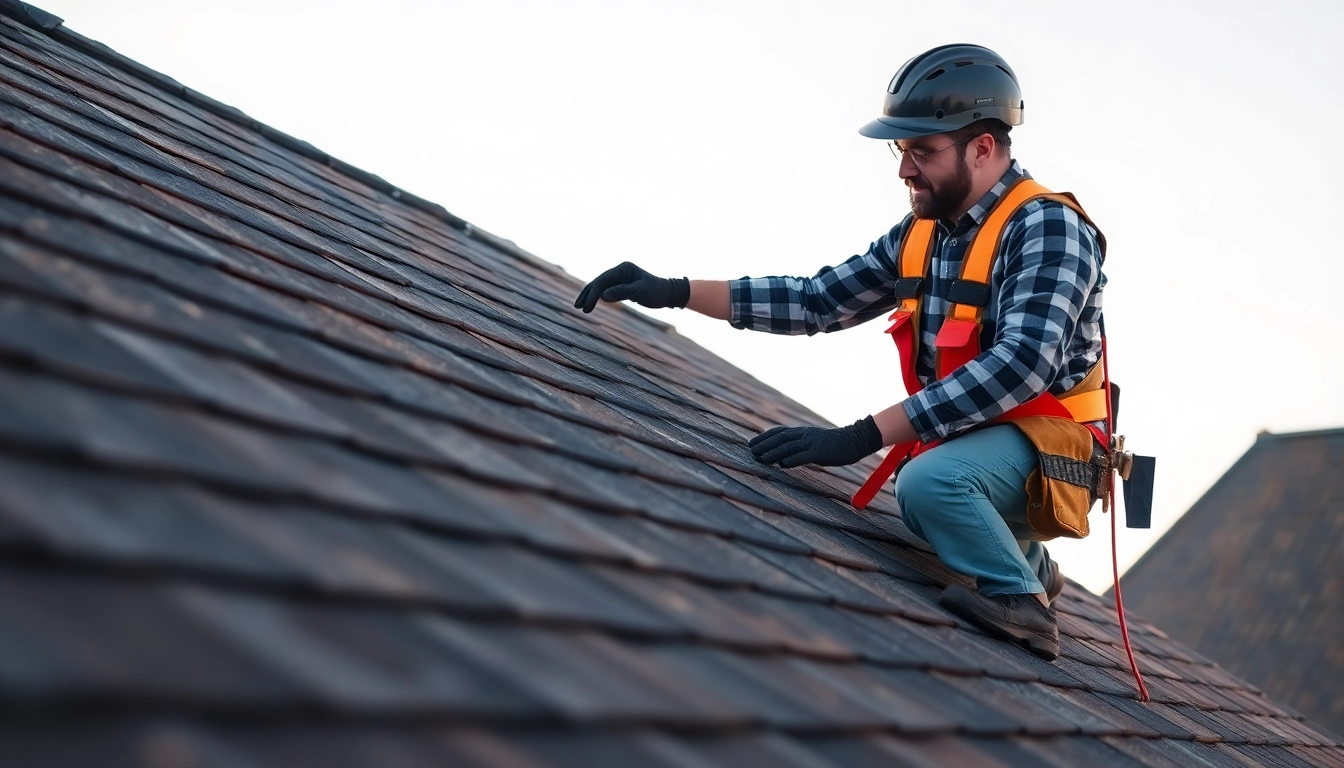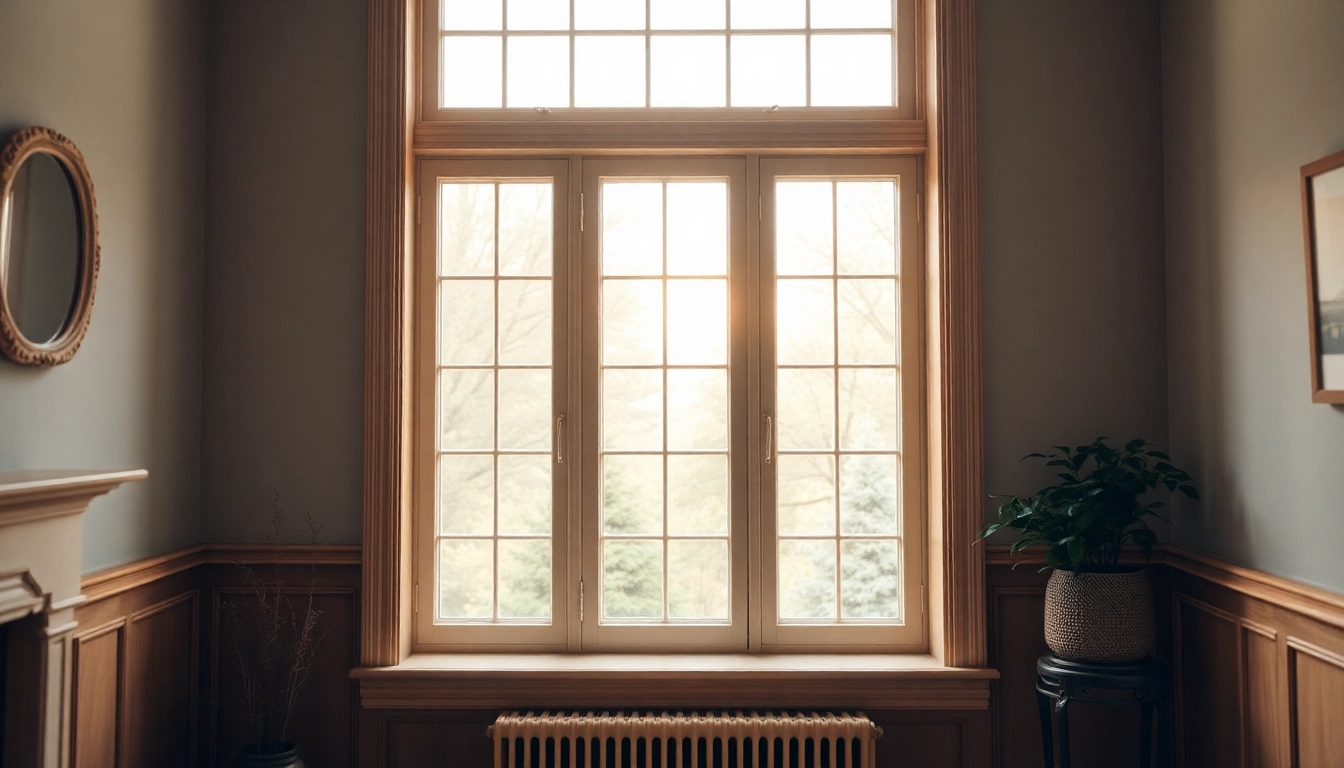Understanding the Role of a Roofer and Why It Matters
The role of a roofer is fundamental to the safety, durability, and aesthetic appeal of any building. Whether residential, commercial, or industrial, a well-maintained roof acts as a protective barrier against the elements, preventing water intrusion, structural decay, and energy inefficiencies. The expertise of knowledgeable roofers directly impacts the longevity of structures, cost-effectiveness of repairs, and overall satisfaction of property owners. As such, choosing a qualified and experienced roofer is crucial for ensuring that your investment is protected and your property remains secure.
What Does a Roofer Do? Key Responsibilities Explained
Roofers are skilled tradespeople specializing in the installation, repair, and maintenance of roofs. Their responsibilities encompass a range of tasks that require precision, technical knowledge, and physical agility. Some core duties include:
- Roof Inspection: Assessing the current condition of a roof to identify damage, wear, and potential vulnerabilities.
- Material Selection and Preparation: Recommending suitable roofing materials based on climate, building type, and budget, and preparing surfaces for installation or repairs.
- Roof Installation: Installing new roofs using various materials such as asphalt shingles, metal panels, single-ply membranes, and bitumen.
- Repair and Restoration: Fixing leaks, replacing damaged shingles, sealing cracks, and restoring roofs to their optimal condition.
- Maintenance: Conducting routine inspections and minor repairs to prolong roof lifespan and prevent costly replacements.
- Safety Compliance: Adhering to OSHA and local safety regulations to prevent accidents during high-risk tasks.
Effective roofers combine technical skill with an eye for detail, ensuring each project is performed efficiently and safely, with long-term durability in mind.
The Importance of Professional Roofing for Property Integrity
A high-quality roof is not merely a protective cover; it is an integral component of your property’s structural integrity. Improper installation or delays in addressing roof issues can lead to severe consequences, including water damage, mold growth, compromised insulation, and even structural failure. Professional roofing guarantees that your roof is correctly installed and maintained according to industry standards, increasing resilience and reducing long-term costs.
Moreover, professional roofers understand local building codes and environmental conditions, tailoring their work to maximize performance. For example, in regions with heavy snowfall or hurricane-prone areas, specialized roofing systems are essential to withstand extreme weather. Engaging a qualified roofer ensures your property is fortified against such challenges, translating into safety, comfort, and financial savings over time.
Common Roofing Materials and Their Suitability
The choice of roofing material significantly influences a roof’s durability, aesthetics, and cost. Understanding the characteristics and suitability of common materials helps property owners and contractors make informed decisions:
- Asphalt Shingles: The most widely used due to affordability, ease of installation, and variety of styles. Suitable for residentials, with moderate lifespan (15-30 years).
- Metal Roofing: Known for longevity (up to 50 years), energy efficiency, and resistance to extreme weather. Ideal for residential, commercial, and industrial applications.
- Clay and Concrete Tiles: Heavy-duty and aesthetically appealing, these materials offer excellent durability and fire resistance, often used in Mediterranean and Spanish-style homes.
- Single-Ply Membranes: Typically used in commercial roofing, including EPDM, TPO, and PVC, known for flexibility and weather resistance.
- Bitumen and Built-Up Roofs: Common in flat roofing structures, providing robust waterproofing in commercial settings.
Choosing the right material depends on factors such as climate, building design, budget, and maintenance preferences. A seasoned roofer can assess your specific needs and recommend the best solution for your property.
How to Choose the Right Roofer Near You
Factors to Consider When Hiring a Roofing Contractor
Selecting a reliable and skilled roofer involves careful evaluation of several criteria. Here are essential factors to guide your decision-making:
- Licensing and Insurance: Ensure the contractor holds valid licenses and insurance to protect against liabilities and accidents.
- Experience and Reputation: Verify their track record through reviews, references, and portfolios of completed projects.
- Certifications and Manufacturer Designations: Certified roofers often have specialized training and recognition from leading roofing material manufacturers, ensuring quality standards are met.
- Detailed Written Estimate: Obtain comprehensive estimates that outline material costs, labor, timeline, and warranty details.
- Communication and Professionalism: Choose a contractor who communicates clearly, promptly responds to inquiries, and exhibits professionalism throughout the process.
Questions to Ask Before Signing a Roofing Contract
To avoid misunderstandings and ensure quality work, prepare a set of questions to ask prospective roofers:
- What is the scope of work included in the estimate?
- What materials will you use, and are they warrantied?
- What is the project timeline, and when will it be completed?
- Do you have references or past client testimonials?
- How will you handle permits and inspections?
- What are your payment terms and schedule?
Clear communication upfront helps establish mutual expectations and reduces the likelihood of disputes.
Recognizing Reliable and Certified Roofers in Peabody
Locating trusted roofers in Peabody begins with verifying credentials and local reputation. Look for those with certifications from prominent manufacturers like GAF or CertainTeed, as these indicate adherence to high standards. Additionally, consult online reviews and testimonials from local residents to gauge customer satisfaction.
Members of professional associations, such as the National Roofing Contractors Association (NRCA), also demonstrate commitment to industry best practices. For tailored assistance, consider contacting local directories or visiting the official websites of reputable roofing contractors like Peabody roofing specialists, who prioritize quality and customer service.
Top Roofing Services Offered in Peabody
Roof Repair and Maintenance Solutions
Routine repairs are crucial for addressing minor issues before they escalate into costly problems. Typical services include fixing leaks, replacing damaged shingles, sealing gaps, and performing preventative inspections. Regular maintenance extends the lifespan of your roof by optimizing its condition and identifying potential weaknesses early.
Professional roofers utilize advanced tools such as infrared scanners to detect hidden moisture or deteriorated substrates. These evaluations facilitate targeted repairs, ensuring minimal disruption and maximum effectiveness.
Complete Roof Replacement Processes
When repairs are insufficient, a full roof replacement becomes necessary. This comprehensive process involves:
- Detailed inspection and assessment
- Securing necessary permits and conducting site preparations
- Removing old roofing materials and inspecting underlying structures
- Installing new underlayment and roofing materials with precision
- Final inspections to ensure compliance with safety and quality standards
Modern techniques aim to reduce waste, improve energy efficiency, and enhance visual appeal, aligning with homeowner preferences and environmental considerations.
Emergency Roofing and Leak Repairs
Unforeseen weather events or sudden damages necessitate immediate action. Most local roofing companies in Peabody offer emergency services, including temporary waterproofing, tarp installation, and rapid repairs to prevent further damage. Having a prompt response minimizes water intrusion, mold growth, and structural risks.
It’s advisable to have a reliable contractor on speed dial for emergencies, ensuring rapid response during storms or other calamities.
Cost, Estimates, and How to Budget for Your Roofing Project
Understanding Roofing Price Factors
Roofing costs vary based on multiple factors, including material choice, roof size, complexity, and labor requirements. Key price determinants include:
- Material Type: Premium materials like metal or slate increase costs but offer longer durability.
- Square Footage: Larger roofs have higher material and labor expenses.
- Roof Pitch and Design: Steep or complex designs require additional safety measures and time.
- Accessibility: Difficult-to-reach areas can elevate labor costs.
- Removal of Old Roofing: Tear-off and disposal fees add to overall expenses.
Understanding these factors helps in setting realistic budgets and avoiding surprises.
Getting Accurate Free Estimates from Local Roofers
Requesting multiple detailed estimates ensures competitive pricing and clarity on scope. Be sure to:
- Receive written proposals outlining all costs and warranties.
- Confirm the inclusion of permits, debris removal, and inspection fees.
- Ask about financing options if necessary.
Most reputable roofers in Peabody offer free consultations and estimates, enabling homeowners to compare options effectively.
Affordable Roofing Options Without Compromising Quality
Cost-conscious homeowners can find quality solutions through strategic material choices, phased projects, or financing plans. For example, selecting high-quality asphalt shingles or metal panels may provide long-term savings by reducing repair frequency.
Additionally, some contractors offer flexible payment plans or seasonal discounts, making professional roofing more accessible without sacrificing structural integrity or aesthetic appeal.
Maintaining and Extending the Life of Your Roof
Regular Inspections and Preventative Care
Preventative maintenance is vital for prolonging your roof’s lifespan. Annual inspections by certified roofers can identify early issues like loose shingles, damaged flashing, or blocked gutters. Clearing debris, trimming overhanging branches, and ensuring proper drainage further safeguard your roof’s health.
Incorporate routine checkups after severe storms or seasonal changes to catch emerging problems early, reducing the risk of costly repairs or replacements.
Signs Your Roof Needs Immediate Attention
Being alert to warning signs can prevent extensive damage. Key indicators include:
- Stray shingles or granules in gutters
- Visible leaks or water stains indoors
- Water pooling on flat roofs
- Ceiling bulges or sagging
- Exposed or rusted flashing
- Unusual increases in energy bills (indicating insulation issues)
Immediate professional assessment can mitigate further deterioration and costly repairs.
Long-Term Benefits of Choosing a Skilled Roofer
Engaging experienced and certified roofers ensures durable installation, quality craftsmanship, and adherence to safety standards. The long-term benefits include:
- Enhanced roof longevity and performance
- Reduced frequency of repairs and replacements
- Improved energy efficiency through proper insulation and ventilation
- Increased property value and curb appeal
- Peace of mind with warranty-backed work
Investing in top-tier roofing services provides substantial savings and convenience for years to come.



